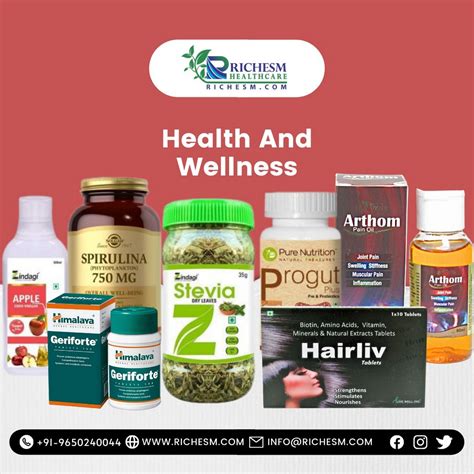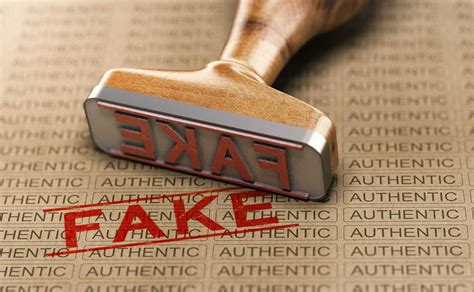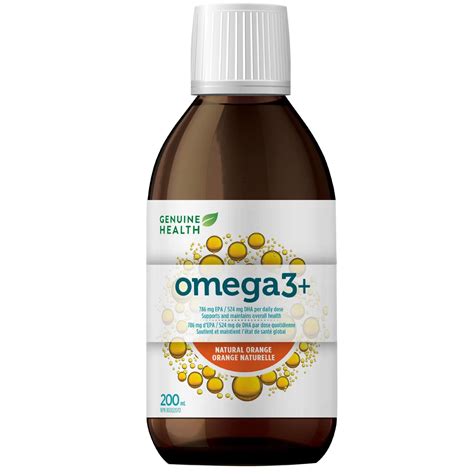Signs That a Wellness Product is Not Genuine: A Comprehensive Guide
In today’s world, the wellness industry is booming. People are increasingly seeking natural solutions to improve their health and well-being. This has led to a surge in the availability of wellness products, ranging from supplements and essential oils to herbal teas and detox programs. However, with the rise in demand comes an unfortunate increase in the number of counterfeit and substandard products.
It’s crucial to be cautious when purchasing wellness products to ensure you’re getting what you pay for and that the products are safe and effective. Here are 10 signs that a wellness product may not be genuine:

1. Unrealistic Claims and Promises
One of the biggest red flags to look out for is exaggerated or unrealistic claims. Be wary of products promising miraculous results or overnight transformations. Legitimate wellness products typically focus on gradual and sustainable improvements, not instant fixes.
For example, a product claiming to «burn 10 pounds of fat in a week» or «cure all your ailments» is likely a scam. Always be skeptical of claims that seem too good to be true.
Here are some examples of unrealistic claims you might encounter:
- Guaranteed weight loss without diet or exercise
- Cure for chronic diseases
- Complete detoxification of the body in a short time
- Increased energy levels without any effort
- Enhanced cognitive function without any mental stimulation
Always do your research and read reviews before purchasing any wellness product. Look for products with scientific backing and evidence-based claims.
2. Lack of Transparency and Information
A legitimate company will be transparent about its products and ingredients. They will readily provide information on their website, packaging, or upon request.
If a company is hesitant to disclose information about its manufacturing processes, ingredients, or clinical trials, it could be a sign that they have something to hide.
Here are some red flags to watch for:
- Vague or ambiguous product descriptions
- Lack of information about the manufacturer or origin of ingredients
- Absence of contact information
- Website with minimal content or unclear layout
- Refusal to provide details about the product’s safety or efficacy
Remember, transparency is a crucial indicator of a reputable company. Always seek out information from trustworthy sources.
3. Suspicious Pricing and Discounts
Beware of products that are priced significantly lower than similar products or those offered at heavily discounted rates. Sometimes, a price that’s too good to be true actually is.
While some genuine wellness products may offer occasional discounts, a consistently low price compared to the market average could be a sign of counterfeit or inferior quality.
Here are some pricing tactics to be cautious about:
- Limited-time offers or pressure tactics to make a quick purchase
- Prices that are significantly lower than those of competitors
- Unclear refund policies or hidden fees
- Excessive discounts or «free trial» offers with auto-renewal subscriptions
Always compare prices from different retailers and research the product’s fair market value before making a purchase.
4. Unreliable Website and Social Media Presence
In today’s digital age, a company’s online presence is a reflection of its legitimacy. A well-established company will have a professional website with comprehensive information about its products, services, and contact details.
If you find a company’s website to be unprofessional, with outdated content, broken links, or a lack of customer reviews, it could be a red flag.
Additionally, check the company’s social media presence. If their social media accounts are inactive, lack engagement, or have suspicious content, it might indicate a lack of authenticity.
Here are some red flags to watch out for:
- Website with grammatical errors, broken links, or outdated information
- Lack of contact information or a clear return policy
- Social media accounts that are inactive or lack engagement
- Excessive advertising or promotional posts without any actual product information
- Negative customer reviews or complaints on social media
Always research a company’s online presence and customer reviews before purchasing any wellness products.
5. Lack of Third-Party Certifications and Testing
Reputable wellness products often undergo independent testing and receive certifications from organizations that ensure quality and safety. These certifications can provide an additional layer of assurance and help you make informed decisions.
For example, look for certifications from organizations like:
- USP (United States Pharmacopeia): This organization sets standards for quality and purity for dietary supplements.
- NSF International: They test and certify a wide range of products, including dietary supplements, for safety and efficacy.
- ConsumerLab: They independently test dietary supplements for quality and accuracy of labeling.
- Organic certification: This certification verifies that a product has been grown or produced according to organic standards.
If a product lacks third-party certifications or testing, it could be a sign that the company is not committed to quality control or product safety.
6. Unusual Packaging and Labeling
The packaging and labeling of a product can also give you clues about its legitimacy. Look for any inconsistencies or errors in the labeling, such as typos, grammatical mistakes, or mismatched fonts.
A genuine product will have clear and accurate labeling that includes essential information such as ingredients, dosage, warnings, and storage instructions.
Here are some red flags to watch for:
- Packaging that appears poorly made, with mismatched colors or fonts
- Labeling with typos, grammatical errors, or mismatched fonts
- Lack of information about ingredients, dosage, warnings, or storage instructions
- Unclear or missing expiration dates
- Product labeling that doesn’t match the product description on the website or marketing materials
Always inspect the packaging and labeling carefully before purchasing any wellness product. Look for consistent and professional design, clear information, and accurate details.
7. Pressure Tactics and Sales Techniques
Be wary of salespeople or companies that use pressure tactics or aggressive sales techniques. Legitimate businesses focus on providing information and answering questions to help you make informed decisions.
If you feel pressured to buy something or sense that the salesperson is more interested in making a sale than providing helpful information, it’s a red flag.
Here are some pressure tactics to watch out for:
- Limited-time offers or discounts
- High-pressure sales pitches that focus on fear or scarcity
- Unrealistic promises or guarantees
- Aggressive upselling or attempts to sell additional products
- Lack of time to ask questions or research the product
Remember, you have the right to take your time, ask questions, and research the product before making a purchase.
8. Unreliable Testimonials and Reviews
While testimonials and customer reviews can be helpful, it’s essential to be critical of their authenticity. Some companies may use fake testimonials or manipulate online reviews to create a positive image.
Look for reviews on reputable websites or platforms, and be cautious of testimonials that seem too positive or generic.
Here are some red flags to watch for:
- Testimonials that lack specific details or seem too generic
- Reviews that are overwhelmingly positive with no negative feedback
- Websites or platforms with suspiciously high numbers of positive reviews
- Reviews that appear to be written by the same person or use similar language
- Lack of reviews from independent sources
Always research multiple sources, including independent review websites, to get a more balanced perspective on a product.
9. Lack of Proper Storage and Handling
When purchasing wellness products, it’s essential to pay attention to their storage and handling. Poor storage can compromise the quality and efficacy of the product.
For example, certain supplements, herbs, and essential oils should be stored in dark, cool places to maintain their potency. If you notice any signs of damage, contamination, or improper storage, it could indicate a lack of quality control or authenticity.
Here are some red flags to watch for:
- Products stored in direct sunlight or in humid environments
- Damaged or torn packaging
- Signs of contamination, such as mold, discoloration, or unusual odors
- Products that are not stored in their original containers or with proper labeling
Always check the product’s packaging, storage conditions, and expiration date before purchasing. Be sure to store the products according to the manufacturer’s instructions to maintain their integrity.
10. Missing or Incomplete Product Information
A legitimate wellness product will have complete and accurate information available, including a clear description of the product, its ingredients, dosage, warnings, and potential side effects. This information should be readily available on the product’s packaging, website, or other marketing materials.
If you find it difficult to locate essential information about a product, it’s a red flag.
Here are some red flags to watch for:
- Missing or incomplete ingredient lists
- Lack of clear dosage instructions
- Absence of potential side effects or warnings
- Unclear or missing contact information for the manufacturer
- Limited information about the product’s origin, manufacturing process, or testing
Always ensure that you have access to comprehensive information about a product before purchasing it. If you’re unsure about anything, don’t hesitate to contact the manufacturer or a healthcare professional for clarification.
Summary of Signs of a Counterfeit Wellness Product

| Sign | Description |
|---|---|
| Unrealistic Claims and Promises | Exaggerated or impossible results, overnight transformations, cure-alls |
| Lack of Transparency and Information | Vague product descriptions, hidden manufacturing processes, lack of contact information, unclear website |
| Suspicious Pricing and Discounts | Prices significantly lower than competitors, limited-time offers, hidden fees, excessive discounts |
| Unreliable Website and Social Media Presence | Unprofessional website, outdated content, broken links, inactive or suspicious social media accounts |
| Lack of Third-Party Certifications and Testing | Absence of certifications from reputable organizations like USP, NSF International, or ConsumerLab |
| Unusual Packaging and Labeling | Poorly made packaging, mismatched fonts, typos, grammatical errors, unclear or missing labeling information |
| Pressure Tactics and Sales Techniques | High-pressure sales pitches, limited-time offers, aggressive upselling, lack of time for questions |
| Unreliable Testimonials and Reviews | Fake testimonials, manipulated reviews, suspiciously high numbers of positive reviews, lack of independent reviews |
| Lack of Proper Storage and Handling | Damaged or contaminated products, improper storage conditions, unclear expiration dates |
| Missing or Incomplete Product Information | Missing ingredient lists, unclear dosage instructions, absence of warnings, limited product information |
FAQs
Below are some frequently asked questions about signs of counterfeit wellness products.
Is it safe to use a wellness product if I don’t see a list of ingredients?
No, it’s not safe. A complete and accurate list of ingredients is essential to ensure your safety and avoid potential allergies or interactions with other medications. If a product doesn’t disclose its ingredients, it’s a red flag and should be avoided.
What should I do if I suspect a wellness product is counterfeit?
If you suspect a wellness product is counterfeit, it’s best to avoid using it. You can report the product to the manufacturer or a regulatory agency like the FDA. It’s also a good idea to warn others about the potential counterfeit product.
How can I find legitimate wellness products online?
When purchasing wellness products online, research the company thoroughly. Look for a professional website, independent reviews, and certifications from reputable organizations. Always compare prices and research the product’s fair market value before making a purchase.
Should I always consult a healthcare professional before using a wellness product?
It’s always advisable to consult a healthcare professional before using any new wellness product, especially if you have any underlying health conditions or are taking medications. They can provide personalized advice and ensure the product is safe and appropriate for you.
What are the potential risks of using counterfeit wellness products?
Counterfeit wellness products pose several risks, including:
- Ineffectiveness: Counterfeit products may not contain the advertised ingredients or active compounds, rendering them ineffective.
- Harmful ingredients: Counterfeit products can contain harmful or dangerous ingredients that are not listed on the label.
- Allergic reactions: Counterfeit products can contain unknown ingredients that could trigger allergic reactions.
- Interactions with medications: Unknown ingredients in counterfeit products can interact with medications, leading to adverse effects.
- Health risks: Counterfeit products can contain contaminants or harmful substances that can pose serious health risks.
Is it worth taking the risk with a cheap wellness product?
No, it’s not worth taking the risk with a cheap wellness product. Counterfeit products can be hazardous to your health and may not provide the desired benefits. It’s always better to invest in reputable and genuine wellness products that have been tested and certified by independent organizations.
Where can I find more information about counterfeit wellness products?
For additional information about counterfeit wellness products, you can consult reputable organizations such as the FDA, the USP, and the NSF International. These organizations provide resources and guidelines for consumers to identify and avoid counterfeit products.
